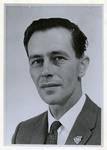Ivan Southall, the older son of Frank and Bessie (nee Voutier), attended Surrey Hills, Chatham and Mont Albert primary schools and started his secondary education at Box Hill Grammar School. Not long before his father died he left school at the age of fourteen. He worked at first as a messenger boy for the Council of Scientific and Industrial Research (CSIR), East Melbourne; then he washed laboratory glassware for Noel Brelaz and Partners, analytical chemists. In 1937 he joined the Melbourne Herald as a copy boy and was later apprenticed to the process engraving department. Southall's articles and short stories were regularly published from his teenage years.
Southall joined the RAAF and in 1943 was posted to No 461 Coastal Command, flying Sunderland planes from Pembroke Dock, Wales. Southall was awarded the Distinguished Flying Cross and some of his books for adults and children are about his experiences as a pilot. These include They Shall Not Pass Unseen (1956), for which Southall used the diaries he kept during the war, and Softly Tread the Brave (1960), about the work of mine disposal officers. On some missions Southall flew with navigator Paul Pfeiffer (q.v.) and they discussed literary work and ambitions in their shared quarters. In 1945 Southall was directed to the history section of the RAAF Overseas Headquarters, Kodak House, Kingsway, near the Strand in London to write the history of his squadron. He returned to Australia with his English wife Joy in 1946 and three years later they settled on a farmlet at Monbulk in the Dandenong Ranges, Victoria where he determined to establish a career as a full-time writer, one of the few in postwar Australia who achieved that distinction.
Southall wrote for all ages, with other lesser known titles including the non-fiction work Woomera (1962), Parson on the Track: Bush Brothers in the Australian Outback (1962) and several information books for children - Bushfire (1968) and Rockets in the Desert (1964). He is best known for his children's books which started in the 1950s when he wrote the popular Simon Black series of adventure novels. With Hills End (1962) he turned away from the hero stories, basing his reputation as one of Australia's best writers for children and young adults on realism and later the 'stream of consciousness', an innovation in books for younger readers in the late 1960s. His books won many national and international awards, including the Children's Book Council of Australia Award four times. His most admired books include Ash Road (1965), To the Wild Sky (1967) and Bread and Honey (1970).
Some of Southall's best known books, including Josh (1971), were written at the family's beach house at Rye, on the Mornington Peninsula. His stories and novels have been translated into many languages and he wrote about his development as a writer in A Journey of Discovery: On Writing for Children (1975). Maurice Saxby (q.v.) was a friend and critic for many years. Two of Southall's children, Drew Southall and Elizabeth Southall (qq.v.), and his second wife, Susan Stanton (q.v.), are also published authors. Southall lived at Monbulk, The Patch, Blackburn and Healesville in Victoria, and in Sydney, and the last years of his life in Mooroolbark, Victoria. He died at the Wantirna Health facility hospice early in the morning of 15 November 2008 of cancer. The State Library of Victoria staged a retrospective exhibition of his work, Southwall from A-Z : Ash Road to Ziggurat in 1998.


